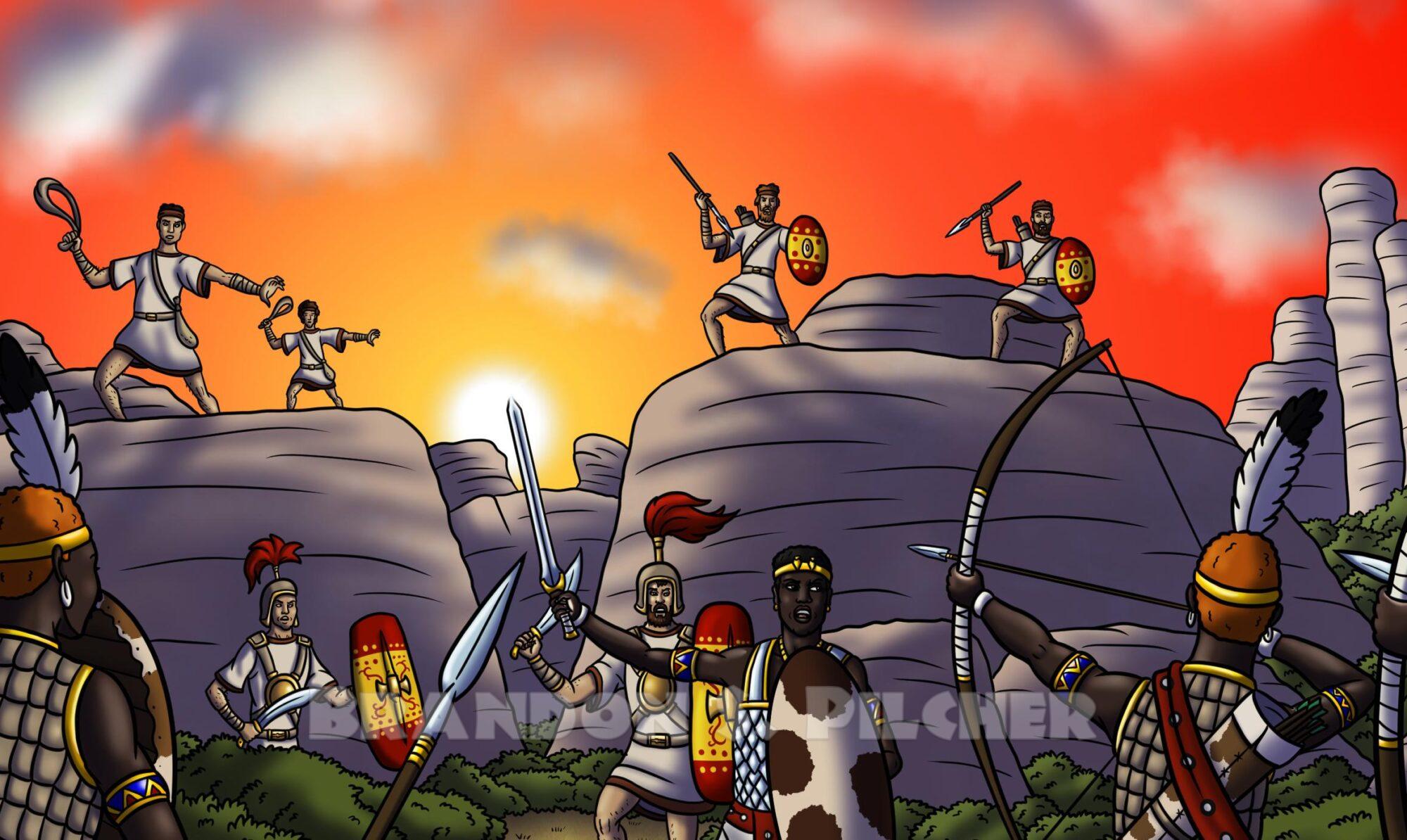Faraji wiped the last speck of blood off his scimitar and held it up against the campfire’s light. Even after all the nicks and scratches it had collected over years of combat, it still shone with an almost heavenly brilliance. The inscriptions in its blade, written in cursive Aradyic, invoked the Moon’s blessing of strength towards whomever wielded the sword. Thus far it had never failed Faraji, and certainly not during his latest raid.
Around the fire, his warriors bantered, joked, and laughed with each other, as warriors across the world always did when resting at camp. They were all Kiswahans like himself, dark brown-skinned with off-white kanzu tunics and turbans over their black, tightly curled hair. In truth, their physical features differed little from the miserable heathens they had yoked and manacled to one another in the darkness at the camp’s edge.
But those sad-eyed idolaters, naked but for loincloths of woven bark and jewelry fashioned from cowrie shells and dinosaur teeth, were not lovely to look at. Even the nubile young women in their ranks had their skin blemished with hideous scarifications of pagan significance. They may have been kin to the Kiswahan race by blood, but the old superstitions they clung to made for a very different, barbaric culture.
A faint yet high-pitched cry, almost like some kind of flute, whistled from the black depths of the surrounding rainforest. Even with the nocturnal humidity and the campfire’s warmth, Faraji could not deny the chill prickling his skin from that eerie noise. He had made a whole career of penetrating these jungles from the east, braving an immense variety of beasts and heathens alike. But never in all his previous ventures had the Kishawan slaver heard such a sound.

